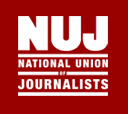
No, this week's Wally isn't Russell Brand or Jonathan Ross (that would have been far too obvious), but a creature named Seth Freedman (pictured above).
Seth who? I hear you ask. Seth has written a quite hilarious- and at the same time disturbing piece for the Guardian's Comment is Free website in which he berates the British public- and the media - for taking delight in the plight of hedge fund managers who lost billions by short-selling VW shares.
The media have seized with glee upon the plight of hedge fund managers who have lost billions by short-selling VW shares. knowledge and comprehension of the events at hand were sacrificed in favour of uncontrolled delight at the outcomes.
The background to the VW affair is simple enough; what is less easy to comprehend is the kicking the press and public have meted out to the losing traders whilst they were down......
much-maligned minority of hedge fund managers – widely believed to be the root cause of all evil by arch-socialists, archbishops and politicians alike – are treated as social pariahs, mocked and ridiculed at every turn, whether they make or lose money.
Freedman whinges.
Then, in an extraordinary paragraph, he writes:
The public's refusal to acknowledge that traders and fund managers have also suffered during this spell of market turmoil means the market players are unlikely to feel compelled to offer much sympathy to the public's plight in return, sympathy that many commentators are demanding be extended by the City on an almost-daily basis.
So there you have it. Unless the public (that's you and I, dear reader) show more sympathy to the plight of those poor, poor 'market players', they're not going to show much sympathy to us.
Freedman, a former City trader clearly sees it as a battle between the Masters of the Universe-ie 'the market players' and the rest of us. We'd better show them some respect and stop laughing at their misfortune, or else.
I don't think any article I have yet read on the financial crisis demonstrates the extraordinary arrogance of those who 'play the markets' as much as this one.
They really do think they are a breed apart from 'the public' who instead of spending their days 'short-selling' companies actually do things which add to the wealth of the country.
It's good to see Freedman's disgusting article receive a mauling from CIF readers.
But I'm pleased he's written it: as it shows quite clearly the arrogant, elitist mindset of those who have it all their own way, for far too long.
UPDATE: It seems that Seth Freedman is carving out quite a lucrative little career for himself writing about such matters. Readersread.com report:
Viking have signed the former stockbroker turned writer Seth Freedman for "an insider account of greed, corruption and excess in the City", due next April. A mix of memoir, reportage and interviews, Viking hopes it will reveal the extent to which risking millions every day can be addictive, as well as explaining the inner workings of the market from short selling to bonds swaps.
Editorial director Joel Rickett paid what he described as a "healthy five-figure sum" for the book,























